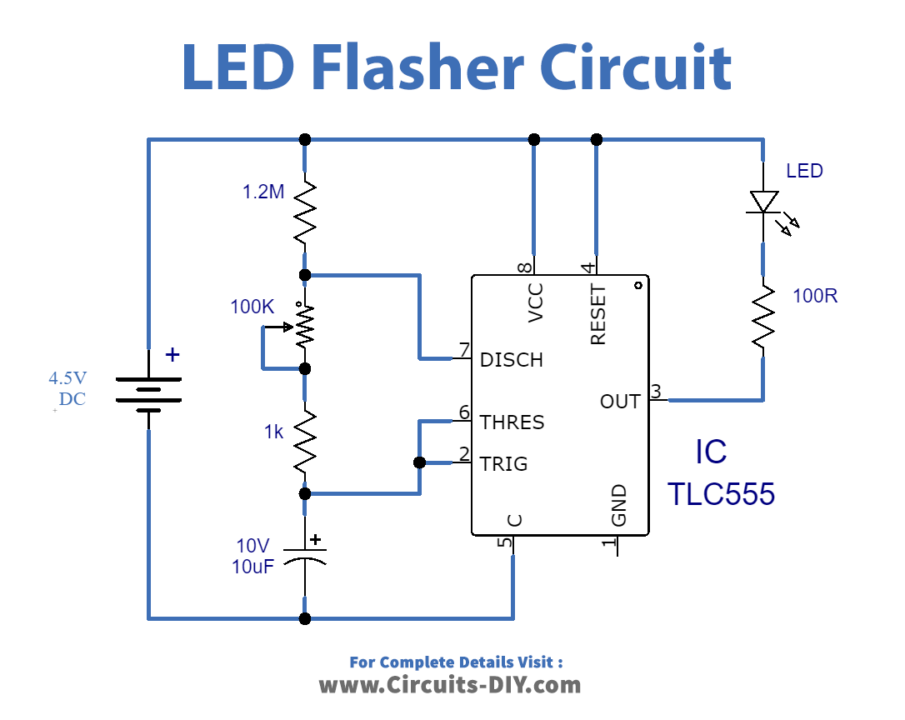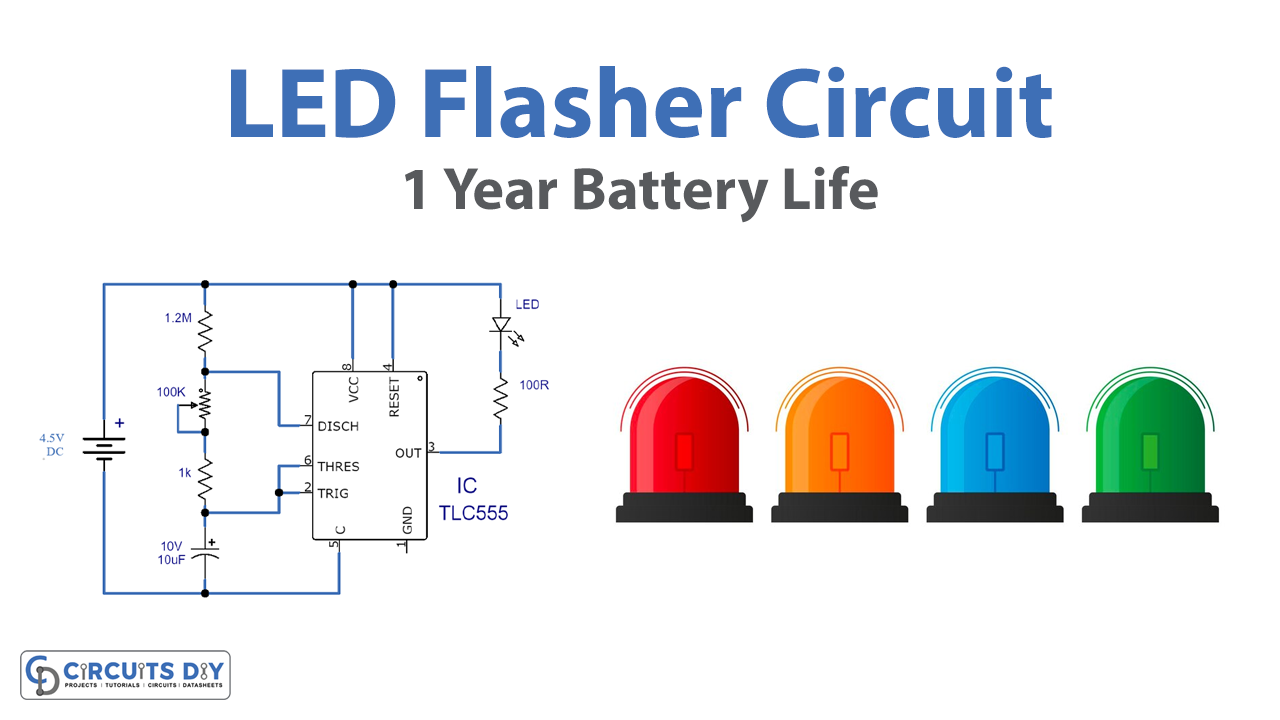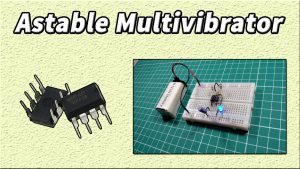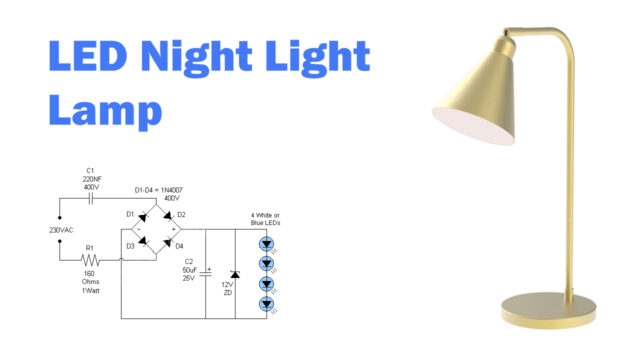Introduction
The circuit of an LED flasher with one-year battery life is very engrossing as it can flash an LED with these alkaline batteries of 1-5 volts on with one battery of 1.5 volts for the duration of several months or for the duration of one year.
LED flashers are integrated circuits of semiconductors that are used to turn off and turn on the groups of light-emitting diodes according to the pattern of the program or sequence. They originated in circuits that are used as controllers and indicators. LED flashers are usually bought in the complete module form that has extenders for circuit connection and prongs for outlet plugging. Few LED flashers are found in the form of a chip or in a unit of an integrated circuit (IC) which needs a source of power for circuit connection.
Hardware Required
| S.no | Component | Value | Qty |
|---|---|---|---|
| 1. | Timer IC | TLC555 | 1 |
| 2. | Resistor | 1K, 1.2M, | 1, 1 |
| 3. | Veriable Resistor | 100K | 1 |
| 4. | Capacitor | 10uF | 1 |
| 5. | LED | – | 1 |
| 6. | Battery | 4.5V | 1 |
Circuit Diagram

Working Explanation
LED flasher circuit with one-year battery life uses a 555 version IC of CMOS. CMOS version IC operates at a voltage of 2 volts to 18 volts and at low current, therefore, it is ideal for the long life of the battery. The CMOS version is created by several different manufacturers and it is available in different numbers of starting parts like ICM755, TLC555, and LMC555, etc. The LED flasher circuit with one-year battery life is mainly designed by using TLC555 IC. The variable resistor of 100 K is used to adjust the LED flashing rate. A resistor of 100 ohms is used with LED to restrict the current. The battery life in the circuit is increased by increasing the l00 K resistor to 1 K but it decreases the brightness of the LED. The circuit operates at a DC voltage of 4.5 volts.
Application and Uses
LED flasher circuit with one-year battery life is used for indication of visual signs.













